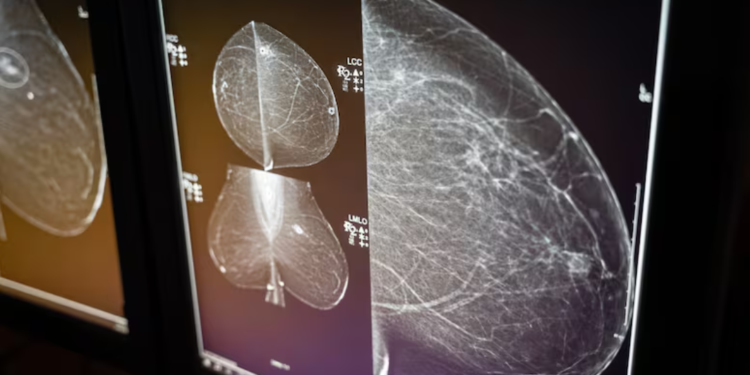May 8, 2025 Story by: Publisher
A recent study published in the Journal of Plastic, Reconstructive & Aesthetic Surgery reveals significant racial disparities in the administration of peripheral nerve blocks (PNBs) for postoperative pain management among women undergoing breast reconstruction (BR) surgeries in the United States.
Key Findings
Analyzing data from the American College of Surgeons National Surgical Quality Improvement Program (NSQIP) between 2012 and 2021, the study encompassed 25,188 patients who underwent BR procedures. Among these, 9,429 patients (37.4%) received PNBs for postoperative analgesia. The study found notable variations in PNB usage across different racial groups.
- Black patients were significantly less likely to receive PNBs compared to White patients, particularly in immediate implant-based and autologous BR, as well as delayed autologous procedures.
- Asian and patients categorized as “Other” races were more likely to receive PNBs in implant-based BR compared to their White counterparts.
- Ethnicity did not have a significant impact on the receipt of PNBs.
These disparities persisted even after adjusting for potential confounding factors, suggesting systemic issues in the equitable delivery of postoperative pain management.
Implications
Peripheral nerve blocks are known to reduce postoperative pain and decrease opioid consumption, thereby enhancing patient recovery and satisfaction. The observed disparities in their administration raise concerns about equitable access to effective pain management strategies. The authors of the study emphasize the need for healthcare providers to recognize and address these disparities to ensure all patients benefit equally from advancements in postoperative care.
These findings underscore the importance of ongoing efforts to understand and mitigate the factors contributing to such disparities, ensuring that advancements in medical care are accessible and beneficial to all segments of the population.
These findings highlight the urgent need to:
- Increase awareness Educate clinicians about the potential for implicit bias in pain management decisions and the importance of ensuring equitable access to PNBs for all patients.
- Address systemic barriers Investigate and address potential systemic factors, such as insurance coverage and hospital policies, which might contribute to disparities in PNB use.
- Improve data collection Advocate for more detailed and standardized data collection on regional anesthesia techniques within national databases to facilitate further research and monitoring of disparities.
By actively addressing these issues, plastic surgeons and healthcare systems can work to ensure that all patients undergoing BR have equal access to effective pain management and optimal surgical outcomes. The authors were succinct in adding that “these findings merit further research to better understand why these disparities in PNB usage exist.
The Bottom Line
- Black patients undergoing breast reconstruction (BR) were significantly less likely to receive PNBs for pain control.
- These findings raise concerns that existing racial disparities in access to BR may be further exacerbated by unequal access to effective pain relief.
- Plastic surgeons and healthcare systems must actively address systemic barriers and implicit bias to ensure equitable access to PNBs and optimal pain management for all patients.
For more detailed information, the full study can be accessed here.
Source: Science Direct / Journal of Plastic Surgery

















